332 delegates, 135 posters, 41 talks, one goal: to cure ALS
The European Network for the Cure of Amyotrophic Lateral Sclerosis (ENCALS) was set up to find a cure for ALS/MND by working collaboratively across 35 research centres (universities and hospitals) throughout Europe.
The 14th meeting of ENCALS took place in Milan between 19-21 May and was attended by scientists and doctors from across Europe. Researchers from the USA and Canada were also invited to present at this meeting.
Presentations on day one of this year’s meeting looked at some of the techniques to help identify genetic changes (mutations) linked to MND, such as whole genome sequencing. This is a rapidly growing area of research, thanks to Project MinE – a global effort to find MND causing genes.
Clinical research was the focus on day two, and discussed the latest imaging and biomarker research. This is an important area as it will offer new ways to help track the progression of MND, and help to speed up diagnosis of this disease.
Our researchers present their work
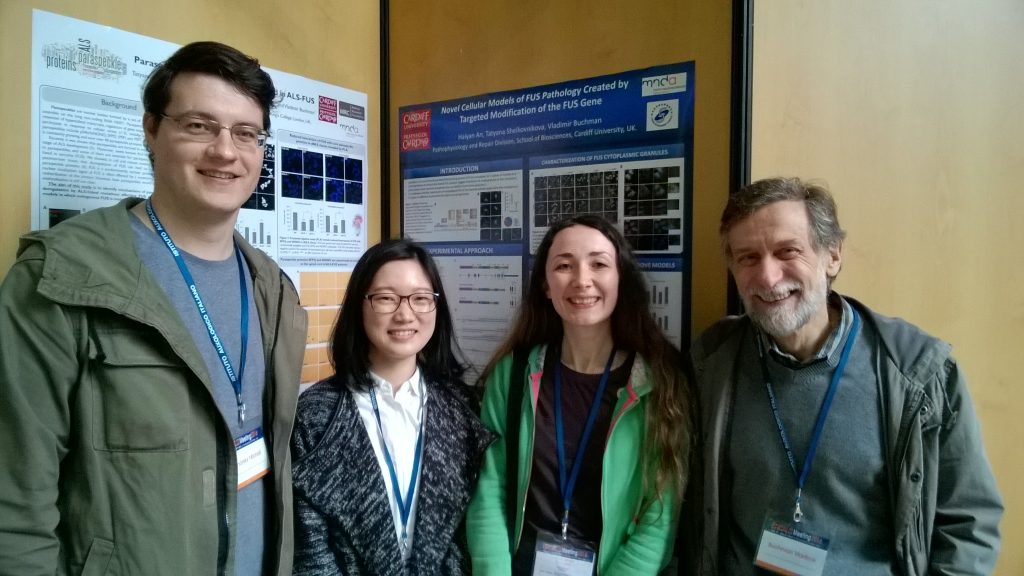
MND Association funded researcher Prof Vladimir Buchman attended ENCALS with his research group from Cardiff University. Their research uses a mouse model of MND to study the role of the FUS gene in detail and its involvement in MND.
Dr Michail Kukharsky, a post-doctoral researcher funded by us on this project presented a poster on a protein called CREST (calcium-responsive transactivator), which has been shown to interact with FUS. Prof Buchman’s PhD student Haiyan An was presented with an award for her poster on research into cell models on the effects of the FUS gene in ALS/MND.
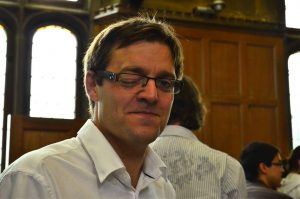
Dr Richard Mead from the Sheffield Institute for Translational Neuroscience (SITraN) holds the Kenneth Snowman MND Association lectureship. His research involves screening potential MND drugs using a mouse model and is a member on our Biomedical Research Advisory panel, helping to review the grant applications we receive.
At the ENCALS meeting he presented on his early stage research into whether a drug recently licensed for Multiple Sclerosis could be beneficial in a mouse model of MND.
Encouraging young MND researchers
This meeting is a chance for the European ALS/MND research community to come together. As it is smaller than our International Symposium on ALS/MND, it is the perfect opportunity for young researchers to present their data, sometimes speaking for the first time at an international meeting.
Jodie Stephenson, who is supervised by Dr Mead at SITraN, gave a talk on her research into a TDP-43 mouse models of MND. This followed on from Jodie presenting a poster on her work at the International Symposium last year. She was helped in attending both ENCALS and the symposium thanks to the support of the Association’s South Yorkshire branch.
ENCALS also gives young researchers the opportunity meet with more established members of the MND research community. Making contacts with potential colleagues of the future ensures the best and brightest young researchers remain in MND research.
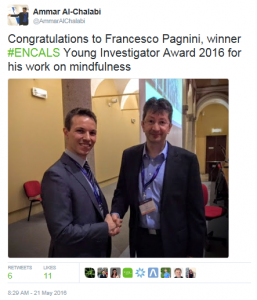 Dr Francesco Pagnini, from the Catholic University of Milan, was presented with the Young Investigator award. This award is given for outstanding research in ALS by researchers under the age of 35.
Dr Francesco Pagnini, from the Catholic University of Milan, was presented with the Young Investigator award. This award is given for outstanding research in ALS by researchers under the age of 35.
Dr Pagnini is researching mindfulness and how it can be used to improve the wellbeing and quality of life of people with MND, and whether it has any impact on disease progression too. He has previously looked into how mindfulness can benefit MND caregivers also.
Collaborating to find a cure
Research into MND is a collaborative effort and does not happen in isolation. At the ENCALS meeting, researchers can take on board the latest findings in their specialist area of MND research and speak to those involved in carrying out this work. Contacts made at ENCALS can result in sharing expertise and resources across borders and laboratory benches.
Our research grants manager, Dr Sadie Vile, attended this year’s ENCALS meeting. She found it a great opportunity to thank researchers who help with peer review of the grant applications we receive twice a year (see this video for more information on peer review), as well as meet new researchers who can potentially help us with this in future.
To find out more about ENCALS visit www.encals.eu. Catch up with tweets from the meeting at #ENCALS
For more information on funding research involving animals please see our website.

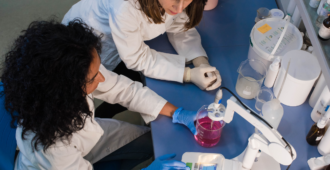
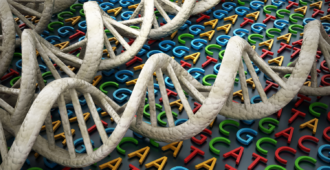
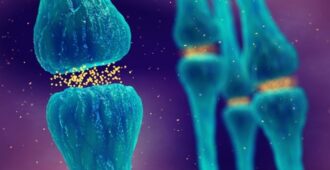
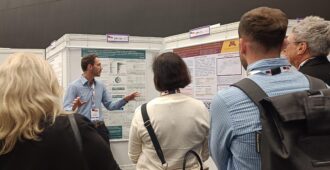
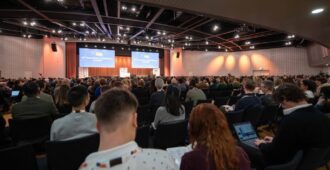
Great to hear about the meeting. Must admit I’d rather hear about significant advances than who has won what accolade. So, for the folks living with MND, what was presented at the meeting that moves us forward?
Dear Colin,
Thank you for your comment. The main focus of the ENCALS meeting was on advances in genetics and biomarkers.
Biomarker advances such as new imaging tools or methods (such as MRI scans) were discussed, which in future will be helpful in tracking and diagnosing MND, also have the potential to help in clinical trials of the future (in terms of monitoring treatment effect).
Information from the huge effort underway to analyse the information taken from sequencing DNA samples is being shared, and genetic information is starting to come to light that will help us know more about the causes of not just inherited MND but all forms of the disease. Knowing more about how genetic changes affect the inner workings of the cell, and what exactly is going wrong, will help give us targets to direct potential treatments and therapies towards. Targeting treatments at the right place makes it more likely they will have some sort of effect.
The meeting does not have a strong healthcare research aspect to it (unlike our International Symposium which last year had sessions on respiratory support and genetic counselling for example). This means that there were fewer things discussed which could be directly applied to symptom management in people who currently have MND for example. However, ways to assess changes to thinking and behaviour (cognitive change) were part of the meeting.
If you are interested then all the abstracts (short summaries of the research presented) can be found on the ENCALS website.
Kind regards
Sara Bolton
Research Team, MND Association UK